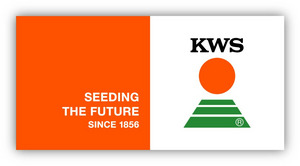KWS SAAT SE & Co. KGaA
KWS SAAT SE & Co. KGaA is a global agricultural company headquartered in Einbeck Germany, specialising in plant breeding and seed production. KWS invests in developing high-yielding, resilient crop varieties with a focus on corn, sugar beet, cereals, oilseed and protein plants, vegetables and cover crops. The company invests about 17% of net sales each year in research and development. In collaborations with universities and research institutions plant breeding technologies are advanced to increase agricultural productivity and to support sustainable food production worldwide.
Role in the project
KWS is involved in all work packages related to Brassica crop wild relatives (CWR). In work package 2, the collected CWR populations will be multiplied by KWS while maintaining their population structure for ex-situ conservation. Pre-breeding activities will be carried out using sub-accessions generated from the CWR populations. Brassica CWRs will be phenotyped for resistance to fungal diseases such as blackleg (Leptosphaeria maculans) and clubroot (Plasmodiophora brassicae). Additionally, larval and adult feeding damage from the cabbage stem flea beetle (Psylliodes chrysocephala) will be assessed through field trials and under controlled conditions.
In work package 3, the development, multiplication, phenotyping, and genotyping of CWR × elite populations will be undertaken by KWS. The most promising and resistant CWR will be used to generate CWR × elite F1 hybrids, followed by backcrossing (BC1, BC2) and selfing steps (BC2S1, BC2S2) to stabilize donor fragments. The resulting material will undergo phenotyping for the traits mentioned above to confirm resistance within the Brassica napus background.
In work package 3, additional support will be provided by KWS through the offering of field sites for wheat introgression line evaluation and assistance with post-project value assessment of Emmer introgression materials developed during the project. In KWS's disease screening nursery in Germany, 250 lines, after multiplication from materials developed by IPK, will be evaluated for resistance to Zymoseptoriatritici (wheat septoria leaf blotch) and Fusarium Head Blight. Additional screening environments will be offered across KWS nurseries in Europe once promising materials are identified, with the aim of integrating this valuable genetic diversity into wheat within the pre-breeding program.
Key persons involved
- Dr Karin Holzenkamp
- Dr Frank Breuer
- Dr Gemma Molero
- Dr Monika Spiller
Further information
Link: KWS - Innovation

 tap and then scroll down to the Add to Home Screen command.
tap and then scroll down to the Add to Home Screen command.